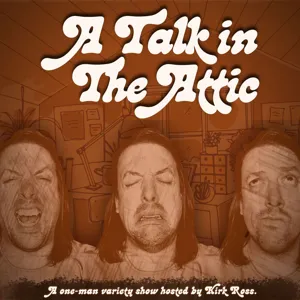121 - Why mental fitness matters and how to improve yours - with Jodie Rogers

We are experiencing a long-overdue explosion of information and awareness about mental health. Just as we’ve steadily developed great interventions for our physical ills, we are now developing similar solutions for our mental ills.
But prevention is always preferable to cures.
Developing our mental fitness can have a hugely positive effect on us as individuals, collectives, and professionals, but it’s not yet a prominent part of the public discussion around mental wellbeing.
Jodie Rogers, founder of Symbia, mental fitness expert, and published author, is on a mission to make mental fitness a key part of how we live and work. She joins me in this episode to share how we can start practicing better mental fitness individually and collectively.
Find out about:
- What the difference is between mental health and mental fitness
- The evidence behind mental fitness and Jodie’s work in the field
- How Jodie coaches mental fitness in corporate settings
- How we can all work on our mental fitness independently
- The common cognitive traps we set ourselves and what we can do to increase our awareness of them
- How and why to prime a group before a workshop
- Why Jodie thinks it’s important to call out signals of discontentment, boredom, or disagreement in a group
Don’t miss the next show: Subscribe to the show with your favourite podcast player.
Click here to download the free 1-page summary.
Thanks to our sponsor “Dancing with Markers”. Click here to get the workshops work discount for Lauren’s upcoming visual facilitation course.
Questions and Answers
[01:00] When did you start calling yourself a facilitator, if you do at all?
[04:20] Can you explain what mental fitness is?
[09:07] Would you call mental fitness a growth mindset?
[14:21] How do you go about teaching groups mental fitness?
[18:08] Does raising this group- and self-awareness improve our understanding of perceptual differences?
[19:50] Do you use any specific tools or ideas to help people understand how their attention works?
[25:56] Do you have a favourite tool or exercise for applying mental fitness?
[29:16] How do you recognise whether a group is mentally available or if there is tension in it?
[31:46] How would you advise someone about calling out visible tension in a group?
[36:04] What sort of scene-setting do you do to make ‘calling out’ possible in a group setting?
[41:03] What makes a workshop fail?
[43:26] What would be your advice for showing up even when we don’t feel very mentally fit?
[45:20] What is the one thing you would like listeners to take away from this episode?
Links
Symbia, Jodie’s company
Jodie’s Mental Fitness Scorecard
Connect to Jodie:
Support the showCheck out the podcast map to see the overview of all podcast episodes: https://workshops.work/podcast-map










